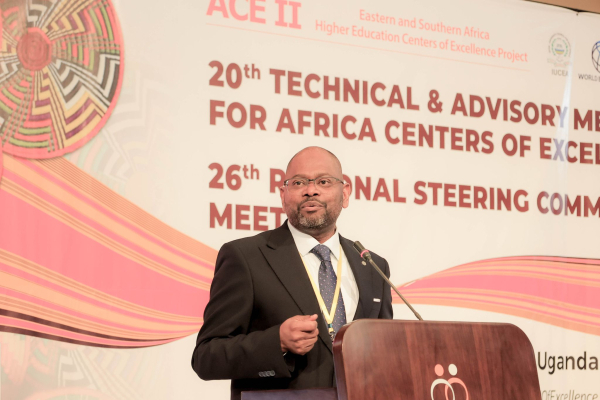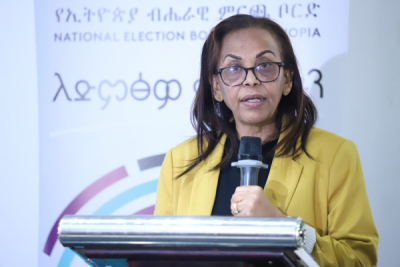- South African start-up Meetable organizes weekly group dinners that match six strangers based on personality, interests and availability.
- Founder Sibs Qetu-Yates launched the platform in 2025 and reports over 1,000 people matched since launch.
- The company prepares a B2B offering, Meetable for Work, to help employers strengthen team cohesion across cities.
Meetable, a South African digital platform, seeks to reconnect people socially in a hyper-connected yet socially fragmented urban world. The company aims to reconcile modern technology with authentic human interaction through shared dinners booked via its web and mobile applications.
The Cape Town–based start-up launched in 2025 under the leadership of Sibs Qetu-Yates. The platform facilitates the weekly organisation of group meals that bring together six strangers selected according to their personality traits, interests and availability.
Users book a dinner online through the app or website, pay a fixed fee and join a group of six people at a partner restaurant. The model aims to recreate the conditions of genuine social encounters, far from the dynamics of social networks or conventional dating applications.
“Cities are full of people, but loneliness is rising,” Qetu-Yates said. “Adults often struggle to make friends after university, especially if they move to a new city or work remotely or in hybrid mode.” She added: “Dating apps dominate the space of ‘new connections,’ but very few apps exist purely for friendship and human relationships.”
Since launch, Meetable reports connecting more than 1,000 people, with many events selling out. The concept appeals to newcomers to major cities, expatriates, remote workers and individuals in transition who often seek social anchors in unfamiliar environments.
The start-up also prepares a B2B service called Meetable for Work. The offering targets companies that want to strengthen cohesion among employees spread across several cities. The platform intends to rebuild social ties, reinforce team spirit and reduce workplace isolation.
As African cities continue to expand and mobility reshapes traditional social structures, platforms like Meetable could play a significant role in rebuilding social bonds and supporting the integration of new arrivals.
This article was initially published in French by Adoni Conrad Quenum
Adapted in English by Ange Jason Quenum
- MindHYVE.ai and the Inter-University Council for East Africa signed a partnership to equip 170+ universities with AI learning tools and certifications.
- The agreement enables universities to access ArthurAI, 50 certified courses, and AI literacy credentials co-issued with the California Institute of Artificial Intelligence.
- The two-year programme aims to build regional AI skills, improve academic mobility, and align higher-education systems with labour-market demand.
The rise of artificial intelligence continues to redefine educational priorities across East Africa. The region, shaped by a young population and a fast-changing economy, seeks to structure its capability building to remain competitive in the global digital transformation.
MindHYVE.ai, Inc., a US-based company specialising in agentic artificial intelligence, and the Inter-University Council for East Africa (IUCEA), the regional body responsible for higher-education harmonisation, signed a partnership on Tuesday, December 9, in Kampala. The agreement aims to turn the region into a future AI skills hub by equipping IUCEA-member universities with advanced learning tools and internationally recognised certification programmes.
“This partnership marks a defining moment for East Africa. Equipping our universities, educators and students with AI knowledge and ethical mastery is essential for the advancement of our region,” said Professor Idris A. Rai, IUCEA’s acting executive secretary. He underscored the region’s ambition to strengthen its competitiveness in the global digital economy.
In its first phase, the agreement will give more than 170 universities access to ArthurAI, MindHYVE.ai’s agentic learning platform, which will be deployed through a regional pilot. The project also includes 50 certified courses under the “The Dawn Directive” programme, AI literacy and proficiency certifications co-issued with the California Institute of Artificial Intelligence, and training sessions for lecturers and academic leaders. A joint committee will supervise the two-year implementation, evaluation and potential scale-up.
This collaboration emerges as demand for digital skills accelerates. East Africa, home to one of the continent’s youngest populations, still struggles to meet the needs for advanced training in emerging technologies. The World Bank estimates that sub-Saharan Africa could create nearly 230 million jobs requiring digital skills by 2030, even as qualification gaps continue to hinder this transition. Governments in the region are adopting national AI, innovation and higher-education reform strategies, creating favourable conditions for regional initiatives.
The implementation of this partnership should enable East Africa to train more students and professionals in skills essential to a digital economy. It also provides universities with a shared foundation to enhance programme quality, increase academic mobility and structure training pathways aligned with the region’s rising technological needs. The initiative could further support member states’ efforts to modernise higher education and integrate emerging technologies into academic curricula.
This article was initially published in French by Samira Njoya
Adapted in English by Ange Jason Quenum
- Ezeebit converts customer crypto payments into local currency settlements for merchants with no exposure to volatility.
- The platform processes payments by converting crypto to USDT instantly, then to South African rand (ZAR) for merchants.
- Ezeebit enables in-store and online crypto payments through POS systems, QR codes, and an API for e-commerce.
Daniel Katz’s initiative addresses a major barrier that still limits the adoption of digital payments in Africa. It enables merchants to access a new category of transactions while maintaining the stability of their operations.
Daniel Katz, a South African entrepreneur and co-founder and chief executive of Ezeebit, leads a start-up that allows African merchants to accept cryptocurrency payments while receiving settlements in local currency without any exposure to price swings in digital assets.
Ezeebit, founded in 2022, aims to make cryptocurrency payments as simple and secure as traditional transactions. The company seeks to create new growth channels for merchants by giving them access to customers who prefer to pay with digital assets, while ensuring that settlements remain stable in local currency.
The solution enables customers to pay with a wide range of cryptocurrencies, while merchants receive their settlement in South African rand (ZAR). Ezeebit eliminates the risk of market volatility by automatically converting the cryptocurrency paid into the stablecoin USDT at the moment of the transaction. The company then converts and transfers the equivalent amount in local currency to the merchant’s bank account.
In physical stores, the payment process works through an electronic point-of-sale terminal. Staff enter the amount in ZAR, select the blockchain network and the cryptocurrency, generate a QR code, scan it, and print the receipt. Merchants may also display a static QR code in the shop for customers to scan before selecting the amount, the cryptocurrency, and their wallet.
For online shops, Ezeebit offers a crypto payment gateway that lets merchants add digital asset settlement options to their e-commerce platforms. Ezeebit ensures next-day settlement in fiat currency through an API integration.
Before Ezeebit, Daniel Katz co-founded Delve Systems in 2019, where he served as chief technology officer until 2023. That start-up helps retailers and brands make data-driven decisions using real-time insights, forecasts, and predictive analytics.
Katz graduated from the University of the Witwatersrand, where he earned a bachelor’s degree in electrical engineering in 2019 before pursuing a master’s degree in the same field.
This article was initially published in French by Melchior Koba
Adapted in English by Ange Jason Quenum
- HireSales uses AI-driven precision matching to analyse job descriptions and candidate profiles simultaneously.
- The platform, created in 2024, connects companies to a vetted pool of sales talent in South Africa.
- HireSales enables companies and candidates to publish profiles and receive automated matching based on skills, experience and cultural fit.
After several years in South African banks, Brandon Ragunanan moved into entrepreneurship. He developed a system that rethinks how sales candidates are identified and ranked.
Brandon Ragunanan, a marketing specialist and entrepreneur based in Cape Town, is the founder and chief executive of HireSales, a recruitment platform dedicated to sales professionals.
HireSales, created in 2024, connects companies to a pool of sales talent in South Africa. The platform analyses job postings and candidate profiles at the same time to propose matches based on skills, experience and organisational culture.
HireSales operates with artificial-intelligence technology focused on “precision matching.” The system examines job descriptions and CVs in detail to identify the profiles that best meet company needs. Its filters and algorithms isolate suitable candidates within a large talent base and integrate qualitative criteria such as compatibility with the work environment.
Companies create a profile and publish their recruitment needs, while candidates join the talent pool and input their career information. The platform then automates the matching process. Users access the suggested matches, contact candidates and adjust their criteria at any time through the online interface.
Alongside HireSales, Brandon Ragunanan serves as sales and marketing director at C Life Marketing, a South African marketing company. He graduated from Damelin in 2009 with a bachelor’s degree in marketing.
He began his professional career the same year at Nedbank as a channel manager. In 2011, he joined Bidvest Bank Ltd as corporate relationship manager. Between 2014 and 2018, he held the position of regional sales director at Altron, a South African technology group.
This article was initially published in French by Melchior Koba
Adapted in English by Ange Jason Quenum
- Ethiopia will introduce digital registration for voters and candidates for the first time for the June 1, 2026 general elections.
- The National Election Board of Ethiopia (NEBE) has launched operational digital platforms and begun training political party representatives.
- Voters will access online self-registration or tablet-assisted registration, supported by a call center and technical teams.
Digital tools continue to reshape electoral processes across Africa by easing access to registration and strengthening transparency. Ethiopia aligns with this trend as it moves to modernize the management of candidate and voter registration.
Ethiopia will introduce digital registration for voters and candidates for the first time during its seventh general elections scheduled for June 1, 2026. Melatwork Hailu, president of the National Election Board of Ethiopia (NEBE), announced the decision on Tuesday, December 9, during a press briefing that outlined the preparations for the vote.
NEBE has activated the digital registration platforms and has launched training for representatives of political parties. The system will allow candidates to register through a web interface or a mobile application. Voters will choose between self-registration online or assisted registration at centers equipped with tablets. NEBE has also set up a call center and deployed technical assistance teams to support users who face difficulties.
This digital shift fits into a broader plan to modernize Ethiopia’s electoral management. NEBE says it aims to improve transparency, efficiency, and accessibility in a context shaped by persistent security challenges, logistical constraints, and high expectations for governance. The introduction of digital tools should secure data, enhance administrative tracking of candidacies, and reduce the recurrent delays observed during registration phases.
Ethiopia counts more than 135 million inhabitants, and mobility remains restricted in several regions. Limited access to administrative centers also complicates participation. Digital registration could therefore ease voter engagement, particularly in rural or remote areas. However, the reform still faces significant constraints, including weak connectivity in many rural zones, unequal access to digital tools, cybersecurity risks, and the need to train users on these new systems.
If the system works as intended, Ethiopia could strengthen the reliability and efficiency of its electoral administration and lay the groundwork for a broader transformation of its democratic procedures.
This article was initially published in French by Samira Njoya
Adapted in English by Ange Jason Quenum
On Tuesday, Dec. 9, the Global South Alliance launched the second round of its Datafication and Democracy Fund, allocating $72,000 to support research and advocacy projects in 2026 examining how datafication affects democratic processes. Organizations based in the Global South and working on digital rights can apply for grants of up to $8,000. Applications must be submitted in English through the online form by Jan. 30, 2026.
South African startup Community Wolf, which develops AI-based security technology, has acquired the emergency-response app Namola. The acquisition will bring together neighborhood alert systems delivered through instant messaging and a nationwide network of medical, fire and security responders. Namola will continue operating as a standalone app but will be integrated into the Community Wolf platform to enable faster and more coordinated emergency responses.
The Lagos team behind NEVO, a personalized learning platform for neurodivergent children, has won the innovation hackathon for the Southwest region in the third cohort of the 3 Million Technical Talent programme, taking a prize of N500,000 (about $345). The event highlights local digital solutions designed to improve inclusive education and expand economic opportunities for Nigerians.
South African bank Capitec is acquiring payment firm Walletdoc for $23.5 million. The transaction includes an immediate payment of 300 million rand ($17.6 million) and 100 million rand ($5.8 million) in contingent consideration. The deal is intended to bring Walletdoc’s technology into Capitec’s business-services platform and strengthen the bank’s position in e-commerce.
The Egyptian platform MoneyHash is partnering with Saudi firm Amwal Tech to boost adoption of local payment methods and offer installment plans. The partnership strengthens MoneyHash’s presence in Saudi Arabia and makes it easier for merchants to add new payment options for their customers.
More...
Ezeebit, a pan-African company specializing in cryptocurrency and stablecoin payments, has raised $2.05 million in a seed funding round. The funds will support expansion in South Africa, Kenya and Nigeria, and help strengthen partnerships with banks and telecom operators. Ezeebit aims to reduce the cost and processing time of digital payments across the continent.
-
Gara Store has signed a strategic deal to distribute Média-Participations' French-language catalog across Africa.
-
The partnership addresses structural market barriers including mobile-first access and local payment constraints.
-
Média-Participations targets Africa as a priority expansion market following growth in Europe, America, and Asia.
The African digital content market experiences rapid growth. A young and connected population drives this trend. However, infrastructure limits access. High costs and a lack of adapted platforms also impede the sector.
Gara Store announced a strategic distribution agreement with European group Média-Participations on Tuesday, December 9. Gara Store operates as an African digital content distribution platform. Média-Participations functions as a major player in French-language comics and family entertainment. This partnership targets the African public with thousands of iconic works. It also strengthens the group's presence in an expanding market.
The agreement covers the French-language catalog of Média-Participations. This inventory includes comics, youth content, and spiritual works. Gara Store will integrate these titles into its system. The platform currently conducts tests in several African countries during its deployment phase. The developers designed the system to address structural obstacles on the continent. These challenges include payment difficulties, mobile Internet access, and local economic constraints. The partners also present the deal as a lever for the African digital entertainment market. It supports creators. It builds a competitive local cultural ecosystem.
The collaboration occurs as the African digital content market sees sustained growth. The continent counts more than 670 million Internet users. Mobile devices provide access for a majority of these users. Mobile networks handle over 70% of Internet connections in Africa. Online entertainment demand increases rapidly within a very young population. People under 25 represent more than 60% of this demographic. However, legal access to cultural content remains limited despite this dynamic. High costs cause this bottleneck. Payment difficulties and fragmented catalogs also contribute to the problem.
Média-Participations views this agreement as a strategic step in its international expansion. The group targets Africa as a new priority market following Europe, America, and Asia. Julien Papelier, General Director of the group, highlighted the significance of the move. "This agreement opens many perspectives for generations of Africans who will discover or rediscover our iconic titles."
The partnership between Gara Store and Média-Participations should expand access to reference content on the continent. The deal aims to encourage collaboration between African creators and international players. It demonstrates the potential of the African digital entertainment market. It generates economic opportunities for the entire value chain. Furthermore, data collected via the platform will help analysts understand local usages and expectations. This insight allows the companies to anticipate future market needs.
This article was initially published in French by Samira Njoya
Adapted in English y Ange Jason Quenum
-
Burkina Faso creates the “Criminal Justice System Module” to allow citizens to file complaints online starting 15 December 2025.
-
The platform aims to reduce administrative delays, strengthen transparency and streamline judicial workflows.
-
Burkina Faso ranked 175th out of 193 countries in the UN 2024 E-Government Development Index, highlighting the scale of digitalisation challenges.
Burkina Faso continues to accelerate its digital transformation as the country faces persistent obstacles to accessing justice. Authorities develop digital tools to simplify procedures, strengthen transparency and improve the responsiveness of judicial services nationwide.
The Ministry of Digital Transition and the Ministry of Justice announced on Tuesday, December 9, the completion of the “Parquet Module of the Criminal Justice System,” a platform designed to enable citizens to file complaints online with public prosecutors across Burkina Faso. The government plans to officially launch the system on December 15, 2025, in Ouagadougou.
Authorities present the Parquet Module as a major public-service modernisation tool. The platform will allow citizens to submit complaints remotely and will give judicial actors the ability to process cases securely and in an integrated manner, from initial filing to verdict. The solution aims to cut administrative delays, reinforce traceability and streamline the work of legal professionals.
The launch aligns with the government’s digital-transformation policy, pursued for several years. Authorities generalised the online criminal-record system in 2023, progressively digitised the penal chain and modernised the Justice Ministry’s information systems. The initiative also responds to structural constraints that continue to hinder access to justice, including slow procedures, congested clerks’ offices and mobility challenges in certain regions.
With the Module Parquet, authorities expect to offer citizens a smoother experience and reduce pressure on physical service counters. The platform should accelerate information flows, improve transparency in complaint processing and strengthen proximity between prosecutors and users. Over time, the data generated by the service will help authorities refine the management of the penal chain and support reforms aimed at making justice more accessible and efficient nationwide.
The United Nations’ E-Government Development Index, which measures online public-service delivery, telecom connectivity and human-capacity levels, ranked Burkina Faso 175th out of 193 countries in 2024 with a low score of 0.2895. The ranking highlights the scale of the remaining challenges in expanding digital public services.
This article was initially published in French by Samira Njoya
Adapted in English by Ange Jason Quenum
-
Prime Music Store fills infrastructure gaps for independent Liberian artists.
-
The platform utilizes a coin-based virtual currency model for revenue generation.
-
Losine Victory Sanyon Jr. combines tech entrepreneurship with humanitarian leadership.
Losine Victory Sanyon Jr. operates as a Liberian entrepreneur and marketer. He co-founded Prime Technologies. He serves as the CEO of this digital solutions firm. The company includes Prime Music Store in its portfolio.
Prime Technologies launched Prime Music Store in 2024. This online platform facilitates streaming, downloading, and music discovery. It highlights independent Liberian artists specifically. The service connects creators with their audiences. Consequently, the system enables artists to monetize their work. Listeners support performers directly through an interface designed for intuitive use.
The platform employs a structured user journey. Users create accounts first. They purchase "coins" subsequently. They access streaming and downloading services then. Subscribers explore new titles. They create playlists. They personalize their listening experience in a few clicks.
The business model relies on coin purchases. Users utilize this virtual currency for listening, downloading, or tipping. The pricing strategy sets the value at $1 per coin. The company offers various packs to suit different usage levels.
Sanyon Jr. leads HELP International as its president alongside his digital activities. This humanitarian organization operates in Liberia. He also manages social media for Synergy4WBO. This local non-profit supports the profitability of small businesses owned by women and people of color.
Sanyon Jr. holds a diploma from the Hermann Gmeiner International School. He received this credential in 2022. He also graduated from the University of Liberia. He obtained a bachelor's degree in public administration there in January 2025.
This article was initially published in French by Melchior Koba
Adapted in English by Ange Jason Quenum















